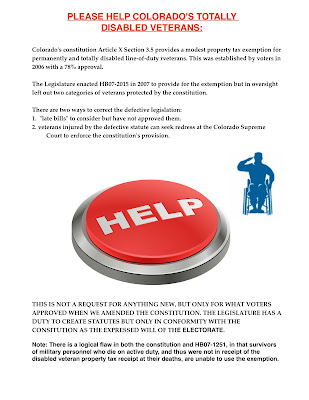Following is the Code of Federal Regulations governance of VA unemployability ratings. Note that VA considers Permanent and Total Unemployability awards (TDIU) to be "a rating of 100 percent service-connected disability based on individual unemployability"
§3.340 Total and permanent total ratings and unemployability.
(a) Total disability ratings—(1) General. Total disability will be considered to exist when there is present any impairment of mind or body which is sufficient to render it impossible for the average person to follow a substantially gainful occupation. Total disability may or may not be permanent. Total ratings will not be assigned, generally, for temporary exacerbations or acute infectious diseases except where specifically prescribed by the schedule.
(2) Schedule for rating disabilities. Total ratings are authorized for any disability or combination of disabilities for which the Schedule for Rating Disabilities prescribes a 100 percent evaluation or, with less disability, where the requirements of paragraph 16, page 5 of the rating schedule are present or where, in pension cases, the requirements of paragraph 17, page 5 of the schedule are met.
(3) Ratings of total disability on history. In the case of disabilities which have undergone some recent improvement, a rating of total disability may be made, provided:
(i) That the disability must in the past have been of sufficient severity to warrant a total disability rating;
(ii) That it must have required extended, continuous, or intermittent hospitalization, or have produced total industrial incapacity for at least 1 year, or be subject to recurring, severe, frequent, or prolonged exacerbations; and
(iii) That it must be the opinion of the rating agency that despite the recent improvement of the physical condition, the veteran will be unable to effect an adjustment into a substantially gainful occupation. Due consideration will be given to the frequency and duration of totally incapacitating exacerbations since incurrence of the original disease or injury, and to periods of hospitalization for treatment in determining whether the average person could have reestablished himself or herself in a substantially gainful occupation.
(b) Permanent total disability. Permanence of total disability will be taken to exist when such impairment is reasonably certain to continue throughout the life of the disabled person. The permanent loss or loss of use of both hands, or of both feet, or of one hand and one foot, or of the sight of both eyes, or becoming permanently helpless or bedridden constitutes permanent total disability. Diseases and injuries of long standing which are actually totally incapacitating will be regarded as permanently and totally disabling when the probability of permanent improvement under treatment is remote. Permanent total disability ratings may not be granted as a result of any incapacity from acute infectious disease, accident, or injury, unless there is present one of the recognized combinations or permanent loss of use of extremities or sight, or the person is in the strict sense permanently helpless or bedridden, or when it is reasonably certain that a subsidence of the acute or temporary symptoms will be followed by irreducible totality of disability by way of residuals. The age of the disabled person may be considered in determining permanence.
(c) Insurance ratings. A rating of permanent and total disability for insurance purposes will have no effect on ratings for compensation or pension.
[26 FR 1585, Feb. 24, 1961, as amended at 46 FR 47541, Sept. 29, 1981]
§3.341 Total disability ratings for compensation purposes.
(a) General. Subject to the limitation in paragraph (b) of this section, total-disability compensation ratings may be assigned under the provisions of §3.340. However, if the total rating is based on a disability or combination of disabilities for which the Schedule for Rating Disabilities provides an evaluation of less than 100 percent, it must be determined that the service-connected disabilities are sufficient to produce unemployability without regard to advancing age.
(Authority: 38 U.S.C. 1155)
(b) Incarcerated veterans. A total rating for compensation purposes based on individual unemployability which would first become effective while a veteran is incarcerated in a Federal, State or local penal institution for conviction of a felony, shall not be assigned during such period of incarceration. However, where a rating for individual unemployability exists prior to incarceration for a felony and routine review is required, the case will be reconsidered to determine if continued eligibility for such rating exists.
(Authority: 38 U.S.C. 5313(c))
(c) Program for vocational rehabilitation. Each time a veteran is rated totally disabled on the basis of individual unemployability during the period beginning after January 31, 1985, the Vocational Rehabilitation and Employment Service will be notified so that an evaluation may be offered to determine whether the achievement of a vocational goal by the veteran is reasonably feasible.
(Authority: 38 U.S.C. 1163)
[46 FR 47541, Sept. 29, 1981, as amended at 50 FR 52774, Dec. 26, 1985; 55 FR 17271, Apr. 24, 1990l; 58 FR 32445, June 10, 1993; 68 FR 34542, June 10, 2003]















